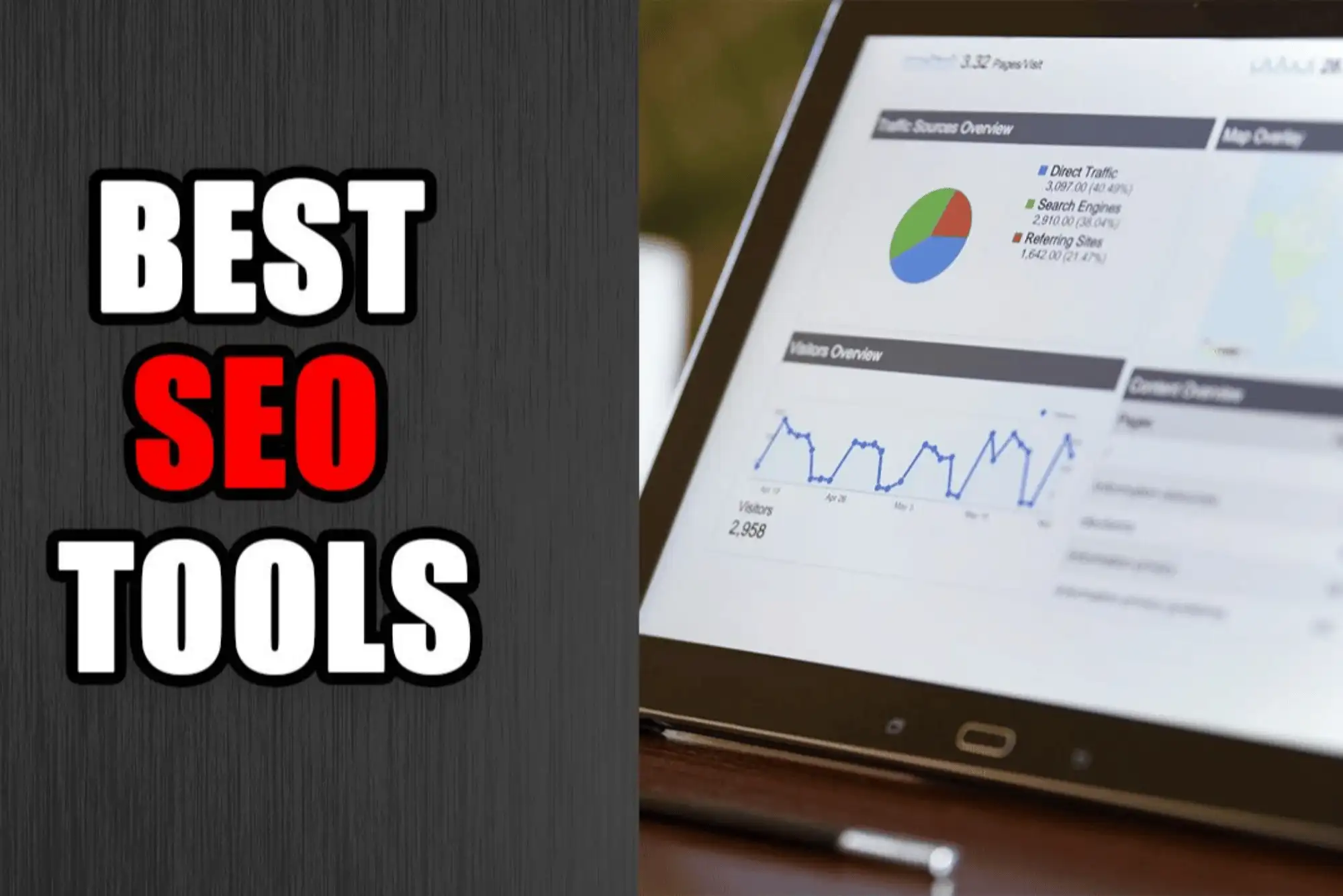In the competitive world of online business, ensuring that your website ranks high in search engine results is paramount to success. This is where SEO (Search Engine Optimization) tools come into play. SEO tools help you analyze, optimize, and monitor your website’s performance, ultimately improving its visibility and driving more organic traffic. In this article, we’ll explore the best SEO tools available to help you achieve your goals.
Overview of SEO Tools
SEO tools come in various forms and serve different purposes. Understanding the categories of SEO tools can help you choose the ones that best suit your needs.
Categories of SEO Tools
- Keyword Research Tools: These tools help you identify relevant keywords and phrases that your target audience is searching for.
- On-page Optimization Tools: On-page SEO tools assist in optimizing individual web pages to improve their search engine rankings.
- Off-page Optimization Tools: Off-page SEO tools focus on activities outside of your website to improve its authority and relevance.
- Technical SEO Tools: Technical SEO tools help optimize the technical aspects of your website to enhance its crawlability and indexing by search engines.
Criteria for Evaluating SEO Tools
When choosing the best SEO tools for your business, it’s essential to consider various factors to ensure they meet your requirements effectively.
Key Evaluation Criteria
- Accuracy of Data: The reliability and precision of the data provided by the tool.
- User-friendliness: How easy the tool is to use and navigate, even for beginners.
- Range of Features: The breadth of functionalities offered by the tool to cover different aspects of SEO.
- Pricing Structure: Whether the tool offers value for money and fits within your budget constraints.
- Customer Support and Documentation: The availability of customer support and comprehensive documentation for troubleshooting and guidance.
- Integration Capabilities: Compatibility with other tools and platforms you use in your workflow.
Top SEO Tools in Each Category
Let’s explore some of the leading SEO tools in each category to help you make an informed decision.
Keyword Research Tools
- Google Keyword Planner: This free tool by Google provides valuable insights into keyword search volumes and competition levels.
- Semrush: Semrush offers comprehensive keyword research features, including competitor analysis and keyword difficulty metrics.
- Ahrefs: Ahrefs provides robust keyword research capabilities along with backlink analysis and rank tracking functionalities.
On-page Optimization Tools
- Yoast SEO: A popular WordPress plugin that offers real-time suggestions for optimizing content based on SEO best practices.
- SEMrush On-Page SEO Checker: SEMrush’s tool helps you optimize individual pages for target keywords, providing actionable recommendations.
- Moz On-page Grader: Moz’s tool analyzes on-page elements and offers optimization suggestions to improve search engine rankings.
Off-page Optimization Tools
- Majestic: Majestic provides insights into a website’s backlink profile, helping you identify opportunities for link building and improving authority.
- BuzzSumo: BuzzSumo allows you to discover trending topics and influential content in your industry, facilitating effective content promotion and outreach.
- Pitchbox: Pitchbox streamlines the outreach process for link building campaigns, helping you identify prospects and manage communications efficiently.
Technical SEO Tools
- Google Search Console: This free tool from Google helps you monitor and resolve technical issues affecting your website’s performance in search results.
- Screaming Frog SEO Spider: Screaming Frog crawls your website to identify technical SEO issues such as broken links, duplicate content, and missing meta tags.
- DeepCrawl: DeepCrawl provides comprehensive website audits, highlighting technical issues that may impact your site’s visibility and ranking.
Here Complete Guide of: Technical SEO
Comparison of Top SEO Tools
Let’s compare some of the top SEO tools based on their strengths, weaknesses, key features, and pricing structures.
Strengths and Weaknesses
- Google Keyword Planner: Offers accurate keyword data but lacks advanced features like competitor analysis.
- Semrush: Provides a wide range of SEO functionalities but can be overwhelming for beginners.
- Yoast SEO: User-friendly interface with real-time optimization suggestions but limited to WordPress users.
Factors to Consider When Choosing an SEO Tool
Selecting the right SEO tool for your business is a crucial decision that can significantly impact your website’s performance and overall digital marketing strategy. To ensure you make an informed choice, here are some essential factors to consider:
Budget Constraints
Before diving into the vast array of SEO tools available, it’s essential to establish a clear budget for your investment. Some tools offer free versions or trial periods, while others require a subscription or one-time payment. Consider your financial resources and evaluate the pricing structures of different tools to find one that aligns with your budgetary constraints.
Specific Needs and Goals
Every business has unique needs and goals when it comes to SEO. Whether you’re focused on improving keyword rankings, increasing organic traffic, or enhancing your website’s technical performance, it’s crucial to choose a tool that caters to your specific requirements. Identify your primary objectives and look for features and functionalities that address those needs effectively.
Scalability
As your business grows, so too will your SEO requirements. It’s essential to choose an SEO tool that can scale alongside your business and accommodate your evolving needs over time. Consider factors such as the tool’s capacity to handle larger datasets, support additional users, and integrate with other tools and platforms as your operations expand.
Compatibility with Existing Tools and Platforms
Many businesses rely on a suite of digital marketing tools and platforms to manage their online presence effectively. When choosing an SEO tool, ensure it integrates seamlessly with your existing systems to streamline workflows and avoid compatibility issues. Look for tools that offer robust API support or pre-built integrations with popular platforms like content management systems (CMS), analytics tools, and marketing automation software.
Ease of Implementation and Adoption
Adopting a new SEO tool requires time and resources for onboarding and training. Opt for a tool that offers a user-friendly interface and intuitive navigation to minimize the learning curve for your team. Additionally, consider the availability of comprehensive documentation, tutorials, and customer support to facilitate smooth implementation and adoption of the tool within your organization.
Reputation and Reliability
The reputation and track record of an SEO tool provider are crucial indicators of its reliability and effectiveness. Research customer reviews, testimonials, and case studies to gauge user satisfaction and success stories with the tool. Look for established providers with a proven history of innovation, customer support, and ongoing development to ensure a positive experience and long-term viability.
Tips for Maximizing the Use of SEO Tools
To ensure that you’re getting the most out of your SEO tools and maximizing their effectiveness in improving your website’s visibility and rankings, consider the following tips:
- Regularly Update Keyword Research: Keywords are the foundation of any successful SEO strategy. Keep your keyword research up to date to reflect changes in search trends, user behavior, and industry dynamics. Leverage keyword research tools to identify new keyword opportunities and refine your targeting for better results.
- Monitor Website Performance Metrics: Beyond just rankings, monitor key performance indicators (KPIs) such as organic traffic, click-through rates (CTR), bounce rates, and conversion rates. Analyze how changes in your SEO strategy impact these metrics and adjust your approach accordingly to achieve your business objectives.
- Stay Informed About Algorithm Changes: Search engine algorithms are constantly evolving, and updates can have a significant impact on your website’s visibility. Stay abreast of algorithm changes from major search engines like Google, and adapt your SEO tactics to align with the latest best practices. SEO tools often provide insights and alerts about algorithm updates, helping you stay proactive in your optimization efforts.
- Utilize Advanced Features for Deeper Insights: Many SEO tools offer advanced features and functionalities beyond basic keyword research and rank tracking. Explore these features to gain deeper insights into your website’s performance, competitor strategies, and industry trends. For example, use features like backlink analysis, content gap analysis, and site audits to identify areas for improvement and optimization opportunities.
- Integrate SEO Tools with Other Marketing Platforms: To streamline your workflow and maximize efficiency, consider integrating your SEO tools with other marketing platforms and analytics tools you use. Integration allows for seamless data sharing and analysis across different channels, enabling you to derive more comprehensive insights and make informed decisions about your SEO strategy.
- Regularly Audit and Optimize Your Website: Conduct regular audits of your website using technical SEO tools to identify and address issues such as broken links, duplicate content, slow page speed, and mobile usability issues. Optimization is an ongoing process, and regular audits help ensure that your website remains healthy and optimized for search engines.
- Experiment with Different Strategies and Tactics: Don’t be afraid to experiment with different SEO strategies and tactics to see what works best for your website and target audience. Test different approaches to on-page optimization, content creation, link building, and outreach, and analyze the results to refine your strategy over time. SEO tools provide valuable data and insights that can help you evaluate the effectiveness of your experiments and make data-driven decisions.





